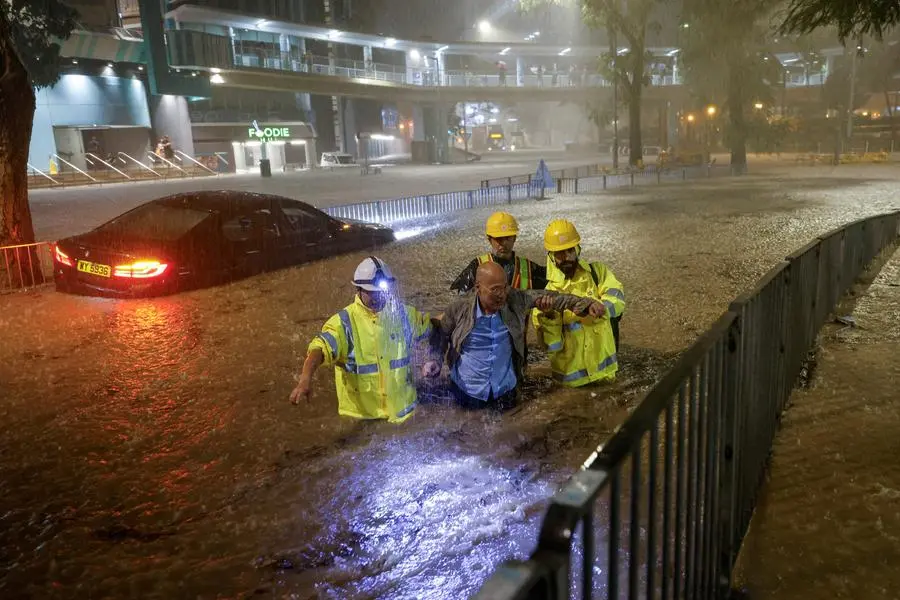PHOTO
Thousands of hospitals worldwide are "at high risk of total or partial shutdown from extreme weather events" if fossil fuels are not phased out by the end of the century, a report by XDI, a climate-risk data analysis company said on Saturday.
The report comes as world leaders meet to discuss the impact of climate change on health at the COP28 U.N. climate summit in Dubai and the benefit to health of reducing emissions.
XDI analysed some 200,000 hospitals globally for risk of damage from climate change hazards and concluded one-in-12 of them - 16,000 - are at high risk of total or partial shutdown from extreme weather without a phase-out of fossil fuels.
"The risk of damage to hospitals from extreme weather events has already increased by 41% since 1990 due to greenhouse gas emissions," the report said.
But, it said, "limiting global warming to 1.8 degrees Celsius with a rapid phase-out of fossil fuels would halve the damage risk to hospital infrastructure compared to a high emissions scenario."
Hospitals near coastlines or next to rivers are most at risk, the report said, and of the 16,000 hospitals at high risk, 71% of them are in low and middle-income countries. Southeast Asia has the highest proportion of hospitals at risk - 18%.
One such hospital is Tondo Medical Center in Manila, a state hospital in the Philippine capital's largest slum. It is one of 300 hospitals in the country listed as being at high risk.
"We are at high risk because we're very near bodies of water and stand on reclaimed area," Maria Isabelita Estrella, the hospital's medical director, told the Thomson Reuters Foundation.
Estrella said the hospital was already no stranger to severe flooding, and patients and staff had at times had to ride on trucks to reach the facility.
CALLS FOR ACTION
Experts say hospitals need data to mitigate and adapt their health services to prevent disruption caused by climate change.
XDI Director of Science and Technology Karl Mallon said that by releasing the risk assessments and ratings of more than 200,000 hospitals globally, hospital administrators and governments now have the climate data they need to adapt and prepare health facilities for extreme weather events.
Renzo Guinto, a doctor and an expert on planetary and global health in Southeast Asia, said the report was a "cause for alarm for the health sector".
"We cannot anymore ignore climate change as a threat to healthcare provision and health systems operations," he said. "We need to better plan where to build our future hospitals and where to relocate the existing hospitals."
Mallon said raising hospital floors and strengthening roofs could help address flooding and extreme winds, but relocating away from rivers and coasts to higher ground was a more costly option.
"Governments have a duty to populations to ensure the ongoing delivery of critical services," he said.
"For individual governments not to take action on this information, or for the global community not to support governments in need, is a blatant disregard for the wellbeing of their citizens."
(Editing by Jon Hemming)





















